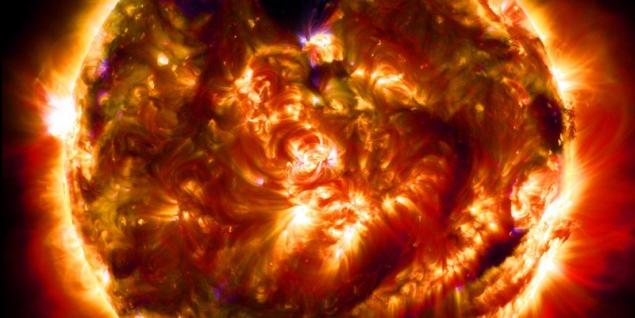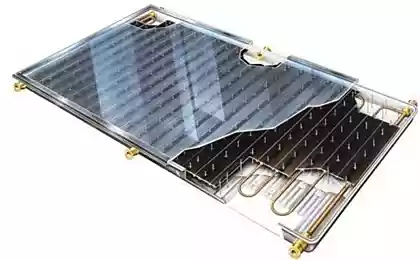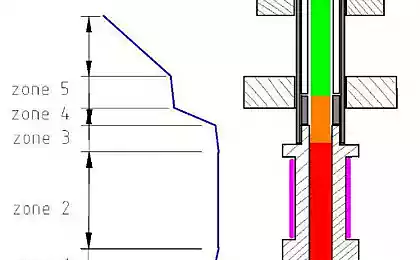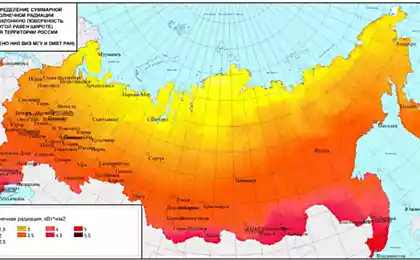398
The ultra-fast heating up to the temperature of the Sun
Scientists have proposed a laser that can heat matter to temperatures higher than the sun's core. According to them, the heating process takes only 20 quadrillion fractions of a second. New technology can be applied in studies of fusion energy.
The research team from Imperial College London (Imperial College London) said that the laser is able to heat the substance up to 100 times faster than any other mechanism currently used for experiments on nuclear fusion. The work, which describes a method of direct heating of the ions, was published in the scientific journal Nature Communications.

Ions make up the bulk of the substance. Typically, the lasers heat the substance using the electrons which in turn heat the ions, which slows down the process. Scientists have discovered that when a powerful laser beam hits certain materials, it creates an electrostatic shock wave, which can directly heat the ions.
To start nuclear fusion has long been used the method of laser heating of the material. Scientists seek to obtain an inexhaustible source of cheap and clean energy. In other words, to effectively reproduce the ability of the Sun to produce energy.
In previous experiments it was observed that the electrostatic shock waves scatter ions without heating them. A new study using computer simulations has shown that certain substances can have a particular combination of ions that are accelerated at different speeds. The result is friction, which leads to rapid heating.
Ions are of two types act as a box and matches. By itself, the match will never light up – you need to strike her in the box to cause friction, — explained the researchers.
Rapid heating is possible due to the high density of the material. Compression of the ions increases the effect of friction. Scientists say that this is the fastest method of heating substances in the laboratory to date.published
P. S. And remember, only by changing their consumption — together we change the world! © Join us at Facebook , Vkontakte, Odnoklassniki
Source: hi-news.ru
The research team from Imperial College London (Imperial College London) said that the laser is able to heat the substance up to 100 times faster than any other mechanism currently used for experiments on nuclear fusion. The work, which describes a method of direct heating of the ions, was published in the scientific journal Nature Communications.

Ions make up the bulk of the substance. Typically, the lasers heat the substance using the electrons which in turn heat the ions, which slows down the process. Scientists have discovered that when a powerful laser beam hits certain materials, it creates an electrostatic shock wave, which can directly heat the ions.
To start nuclear fusion has long been used the method of laser heating of the material. Scientists seek to obtain an inexhaustible source of cheap and clean energy. In other words, to effectively reproduce the ability of the Sun to produce energy.
In previous experiments it was observed that the electrostatic shock waves scatter ions without heating them. A new study using computer simulations has shown that certain substances can have a particular combination of ions that are accelerated at different speeds. The result is friction, which leads to rapid heating.
Ions are of two types act as a box and matches. By itself, the match will never light up – you need to strike her in the box to cause friction, — explained the researchers.
Rapid heating is possible due to the high density of the material. Compression of the ions increases the effect of friction. Scientists say that this is the fastest method of heating substances in the laboratory to date.published
P. S. And remember, only by changing their consumption — together we change the world! © Join us at Facebook , Vkontakte, Odnoklassniki
Source: hi-news.ru























